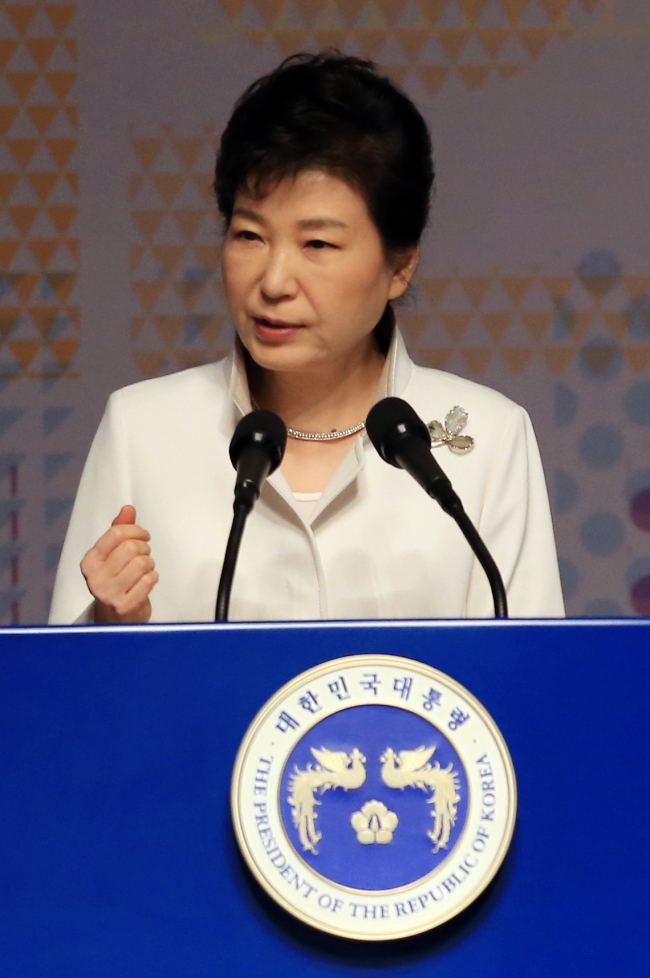President Park Geun-hye on Tuesday vowed to increase pressure on North Korea to abandon its nuclear ambitions and provocations, underlining that the Korean Peninsula’s peace and independence depends on denuclearization.
The speech, delivered on the nation’s Independence Movement Day, reflected the president’s drive to put the North Korean dilemma at the top of the agenda, above all other pending issues.
 |
| (Yonhap) |
“The spirit of the March 1 movement was to promote the unity and independence of our people,” Park said in a televised speech to the nation, marking the 97th anniversary of the national holiday.
“In order to revive such a spirit, it is most crucial to achieve peaceful peninsular unification and to allow our descendants to live in a harmonious, rich and powerful land.”
The March 1 Independence Movement Day, commemorating the protest in 1919 against Japanese colonial rule, usually acts as a forum for the president to pay tribute to deceased patriots, address lingering diplomatic issues with Japan and to call for improved ties.
But this year, in the wake of North Korea‘s consecutive military provocations, Park focused on the North Korean predicament, in a follow-up to her hard-line reaction to North Korean provocations.
“It has become clear that conventional methods may no longer deter North Korea’s aspiration for nuclear armament,” she said.
“We must make the North Korean regime realize once and for all that it may not sustain its power through exploitation and military provocations.”
Park also underlined that the international society shared her position.
“We shall not shut the doors to dialogue, but we and the international society will continue to exert pressure on North Korea unless it displays commitment to denuclearization,” the president said.
“The choice now lies in North Korea’s hands.”
She referred to the U.S. sanctions bill against North Korea, as well as the indications by Japan and European countries that they would approve the United Nations’ imminent disciplinary resolution.
Park’s acknowledgement, however, did not include China, which has largely been passive in sanctioning North Korea and has opposed the possible deployment of a missile defense system on the peninsula.
“I believe that the nations surrounding (the Korean Peninsula) will commit themselves to working for peninsular and world peace,” the president added, alluding to China.
Park spent nearly half of her speech reiterating the government’s hard-line policies against the North and calling for international society’s involvement in the issue.
She also took the opportunity to back the pending antiterrorism bill and labor reform bills that the opposition bloc has been striving to deter by all means — including a week-long filibuster.
“I urge the political circles to drop their strife and focus on protecting the nation and the people from North Korea’s potential terrorist threats,” Park said.
“They should also yield on their vested rights and move on with the labor plans, which may create hundreds of thousands of new jobs for young people.”
The president also stuck in a few sentences in defense of the government‘s compensation deal with Japan for the wartime sex slavery victims.
”The agreement was a hard-earned accomplishment, reflecting the desperate pursuit for a solution before any more of the victims pass away of old age,” she said.
By Bae Hyun-jung (tellme@heraldcorp.com)

